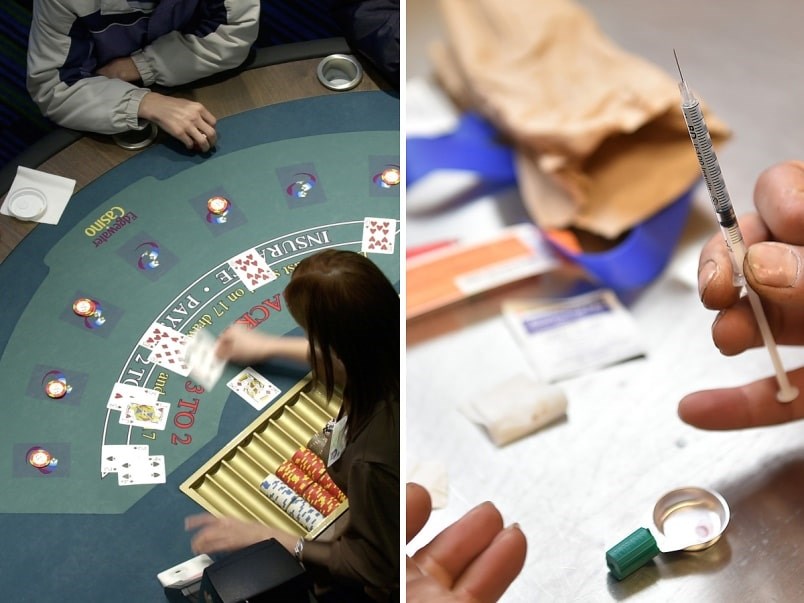I’m a sucker for a good court case.
I used to cover a lot of them in my Richmond days.
Over the years, I heard and wrote stories about drug dealers, people smugglers, kidnappers, killers and many other bad people.
Even had to testify against a couple of criminals—a sex offender and the operator of an illegal marijuana grow-op; they both went to jail.
 A recent court case revealed the connection of a Vancouver cabbie to a drug dealer and the laundering of money in casinos. Photo by Dan Toulgoet
A recent court case revealed the connection of a Vancouver cabbie to a drug dealer and the laundering of money in casinos. Photo by Dan Toulgoet
So it was quite the read when I got around to leafing through Provincial Court Judge Nancy Phillips’ reasons for sentencing convicted drug dealer Raymon Singh Ranu to seven years in prison.
Her reasons were posted May 13 to the court’s website.
You may have read my colleague Jessica Kerr’s summary of the case, which dates back to October 2014. That’s when the Vancouver police began investigating Ranu and others.
The level of drug dealing was one thing, but there were two pieces in Phillips’ narrative that stood out for me in a city where ride-hailing services and casinos are regular newsmakers.
The first piece: A cabbie was involved in the drug network.
The second piece: A conversation between an undercover cop and Ranu in the cab was black-and-white proof that drug dealing is tied to money laundering in casinos.
I’ll start with the cabbie.
He is only identified as “Mr. Khan” in the documents. I’ve since learned his first name is Shazada. He worked for Yellow Cab and was charged with eight counts related to trafficking of heroin and fentanyl.
He pleaded guilty to two counts in November 2016 and received a suspended sentence March 31, 2017.
What did he do?
I’ll let the judge explain.
“Mr. Khan and his taxi cab appear to have been at Mr. Ranu’s beck and call, indicative of financial means and detection avoidance,” she wrote.
“The police also surveilled the taxi and Mr. Ranu’s own vehicle [a Range Rover] to various locations in Metro Vancouver, where he was seen in the presence of Mr. McCormick, a supplier of fentanyl Mr. Ranu sold to the undercover officer.”
“Mr. McCormick” is Walter James McCormick, who was sentenced in January 2017 to 13 years and 144 days in prison for his involvement in the drug trade, specifically the selling of fentanyl.
The judge pointed out that Khan introduced the undercover officer to Ranu. The officer’s story was that he worked in the Northwest Territories and came to Vancouver on his days off to buy heroin and fentanyl to sell up North.
“On occasion, drugs were provided to the officer by Mr. Ranu,” Phillips wrote. “On other occasions, someone else in the taxi handled drugs or money while Mr. Ranu was in the vehicle, or by someone else after Mr. Ranu had negotiated a deal with the officer.”
Now to that conversation in the cab between Ranu and the officer…
It happened in January 2015. The officer bought 29 grams of heroin and 1,001 fentanyl pills. The judge picks up the story from there:
“In the audio recording in the taxi on this date, the undercover officer asked Mr. Ranu for advice on how to deal with the cash from the sale of the drugs and Mr. Ranu advised him to launder the money through casinos.”
The judge said later that “[Ranu] made clear he knew how to launder the proceeds of crime in casinos, another matter of concern to the community.”
That was in January 2015.
Stellar investigative reporting by Kathy Tomlinson and Xiao Xu of the Globe and Mail provided more insight in February 2018 into the fentanyl trade and its ties to the Vancouver real estate market.
Former Postmedia reporter Sam Cooper, now with GlobalNews, also broke--and continues to break--stories on money laundering in B.C. and its ties to gangsters and casinos.
Combined, that reporting triggered the provincial government-commissioned reports released this year and last from Dr. Peter German and the expert panel on money laundering in real estate that estimated more than $7 billion in “dirty money” was laundered in B.C. in 2018.
The luxury car market was also identified as a conduit for the laundering of criminal proceeds.
Now we’re on to a public inquiry into money laundering.
Which means one thing for all us suckers who enjoy a good court case: You can bet more fascinating stories will be heard and written on what Vancouver has become and what people will do to make an illegal buck in one of the most unaffordable cities in the world.
In the meantime, you can read Phillips’ written reasons here.
One last note: The BC Coroners Service reported 1,514 overdose deaths in the province in 2018, the vast majority linked to fentanyl. Of those 1,514 deaths, 389 occurred in Vancouver.



